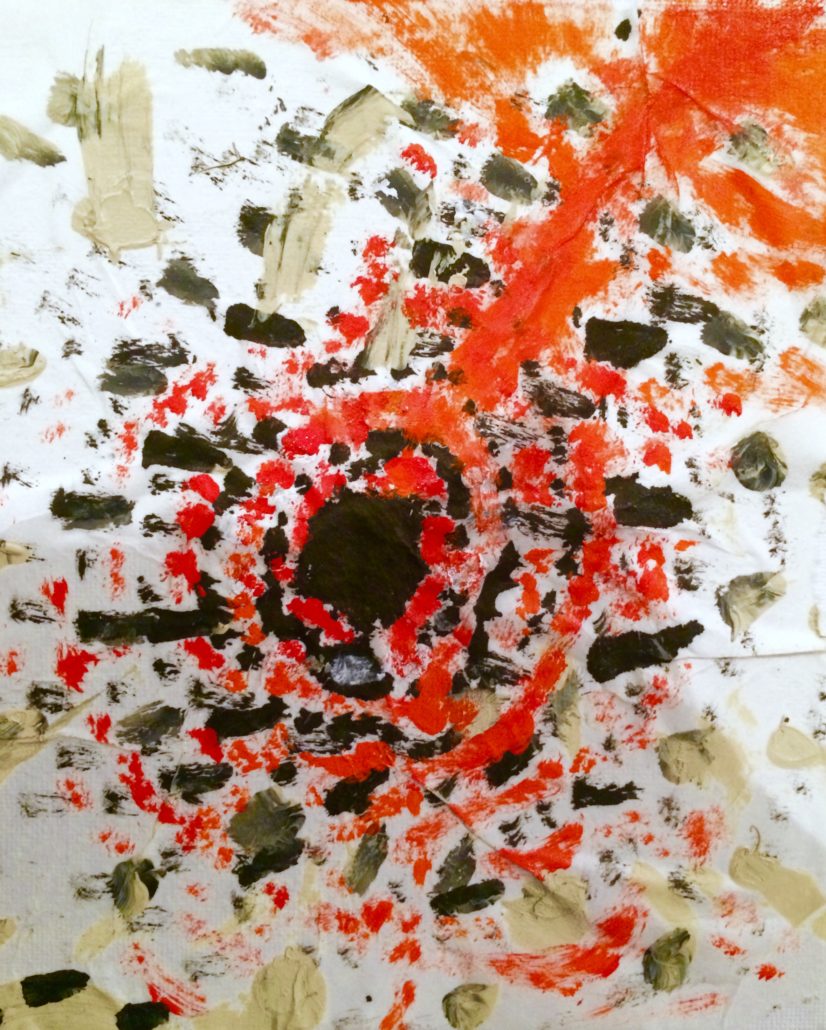‘Disruption’ is asking the Question, ‘Who Are You’?
Last month I attended and gave a workshop at ‘Berlin Change Days’ – a conference full of an extraordinary diversity of bright, creative and highly progressive ‘Change Agents’ – whose theme this year was ‘Disruption’. The conference opened with a mock trial of ‘disruption’, debating whether the word still has credence and traction, or whether it has become a washed-out meaningless buzzword from its overuse in contemporary ‘innovation’ and ‘entrepreneurial’ parlance. In a deft and creative move the organizers had an artist-provocateur disrupt the trial itself, demonstrating the word in action.
What really is ‘disruption’?
What has to happen for ‘disruption’ to occur?
The word itself opens with the intrinsically negative connotations of the prefix ‘dis’. In Roman mythology ‘Dis’ is the ruler of the underworld, and Dante carried that forward in the Divine Comedy in which the ‘City of Dis’ encompasses the sixth through the ninth circles of Hell. Today, when you ‘dis’ someone, you’re insulting them. ‘Dis’ is followed by the word ‘rupture’ which indicates a ‘break’, ‘burst’ or ‘breach’. A ruptured spleen is a medical emergency, a ruptured pipe is one that is broken. ‘Rupture’ is not so much a change word as a word connoting severe damage requiring emergency action.
So, ‘disruption’ is no ordinary change. Nor is it the change necessarily resulting from an innovation, which is where we see it used so often today in entrepreneurial circles. While a new and innovative idea may have a significant impact, does it actually ‘rupture’ something? If an organisation can adapt to the innovation – by changing tactics, by buying it up, by hiring expertise – it’s not ‘disruptive’.
To break it down, disruption requires two core elements. Firstly there needs to be a functional identity: a clearly defined organism or organisation, an operating system or a set of rules, a score or a choreography of some kind. Secondly we need an intrusion that challenges the functional identity with sufficient force that it ruptures some aspect of its core process such that it cannot continue functioning without ‘radical’ (emergency) procedures.
Real disruption is a wound to the integrity of an identity.
Band-aids don’t work on ruptures. Recovery from real disruption requires more than ‘repair’ or ‘replacement’. In fact disruption isn’t asking for ‘recovery’, a return to a previous mode of operation, at all. Response to real disruption requires radical adaptation, structural transformation, a change in identity.
Disruption is asking a question.
The question that disruption is asking is ‘Who are you?’
How you navigate that question determines the path of your evolution.
Will you react or respond?
Will you deflect, dismiss, resist, deny or hide?
Or will you recognise it, meet it, acknowledge it, bear it?
Will you be willing to wrestle with it and, more importantly, with yourself?
Will you seek to understand it and, more importantly, seek to understand yourself?
From a theological perspective ‘disruption’(1) has a strong correlation to the ancient Greek word ‘apocalypse’. ‘Apo’ translates as ‘out from’, and ‘kaluptein’ is ‘cover’. The word uniquely combines a sense of catastrophic termination with revelation and disclosure. Really answering disruption’s challenging call requires diving into a deeper level (the sixth through ninth level?) to ‘discover’ and ‘uncover’ deeper more intrinsic core strains and veins of meaning from which can emerge (emergent-cy) new vigorous forms and paths forward.
(1) Interestingly, Japanese contemporary artist Moriko Mori defines ‘Rupture’, in her Rebirth exhibition, as “the state between death and rebirth”.
In Tibetan Buddhism the ‘state’ between death and rebirth is called ‘Bardo’ and is the subject matter of ‘The Tibetan Book of the Dead’. Tibetan Buddhist scholar and teacher Chogyam Trungpa reinterpreted Bardo as simply “that which exists between situations” asserting that the spiritual and psychological processes that we go through in periods of extreme disruption are very much akin to those that we go through at death.



